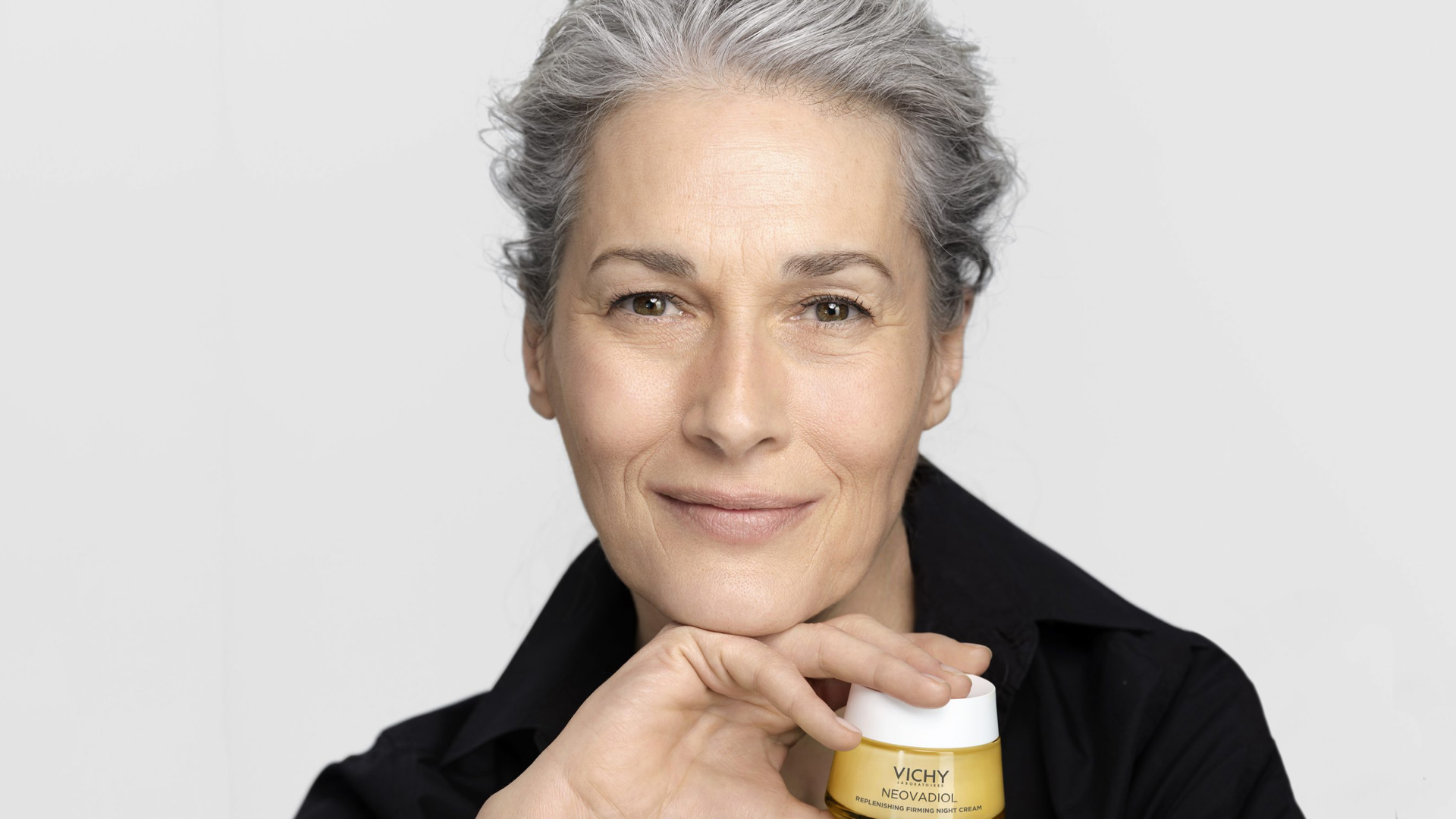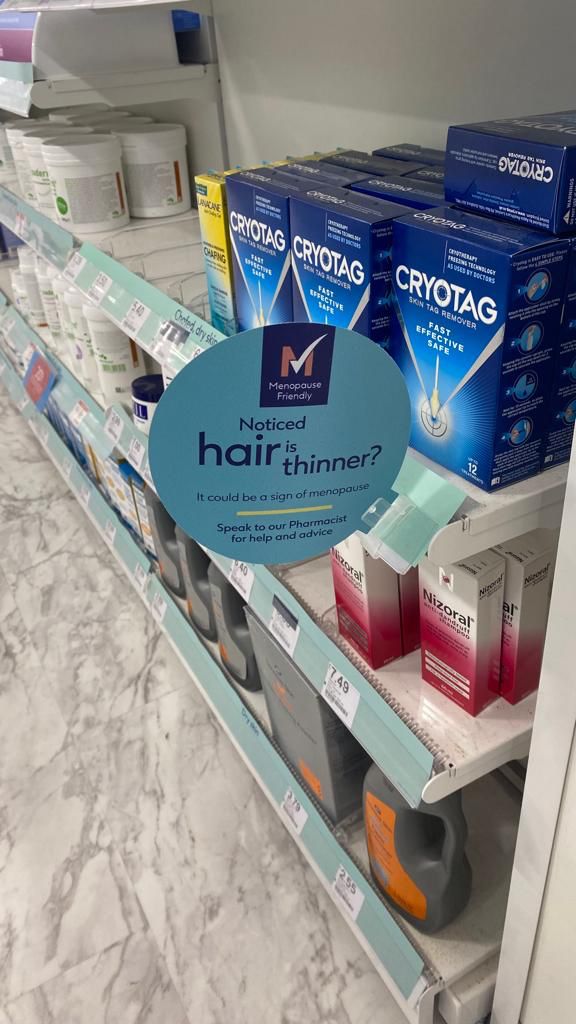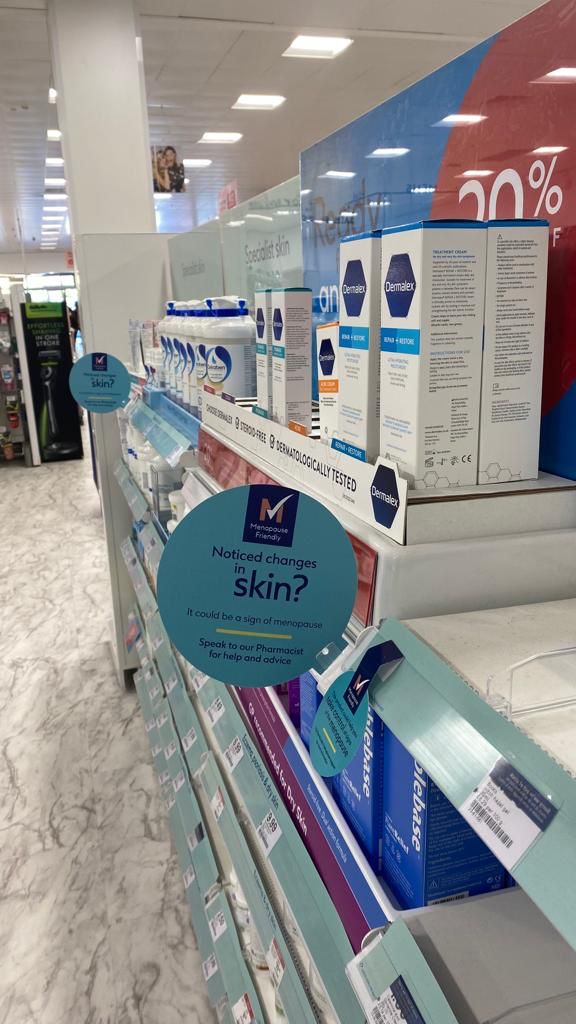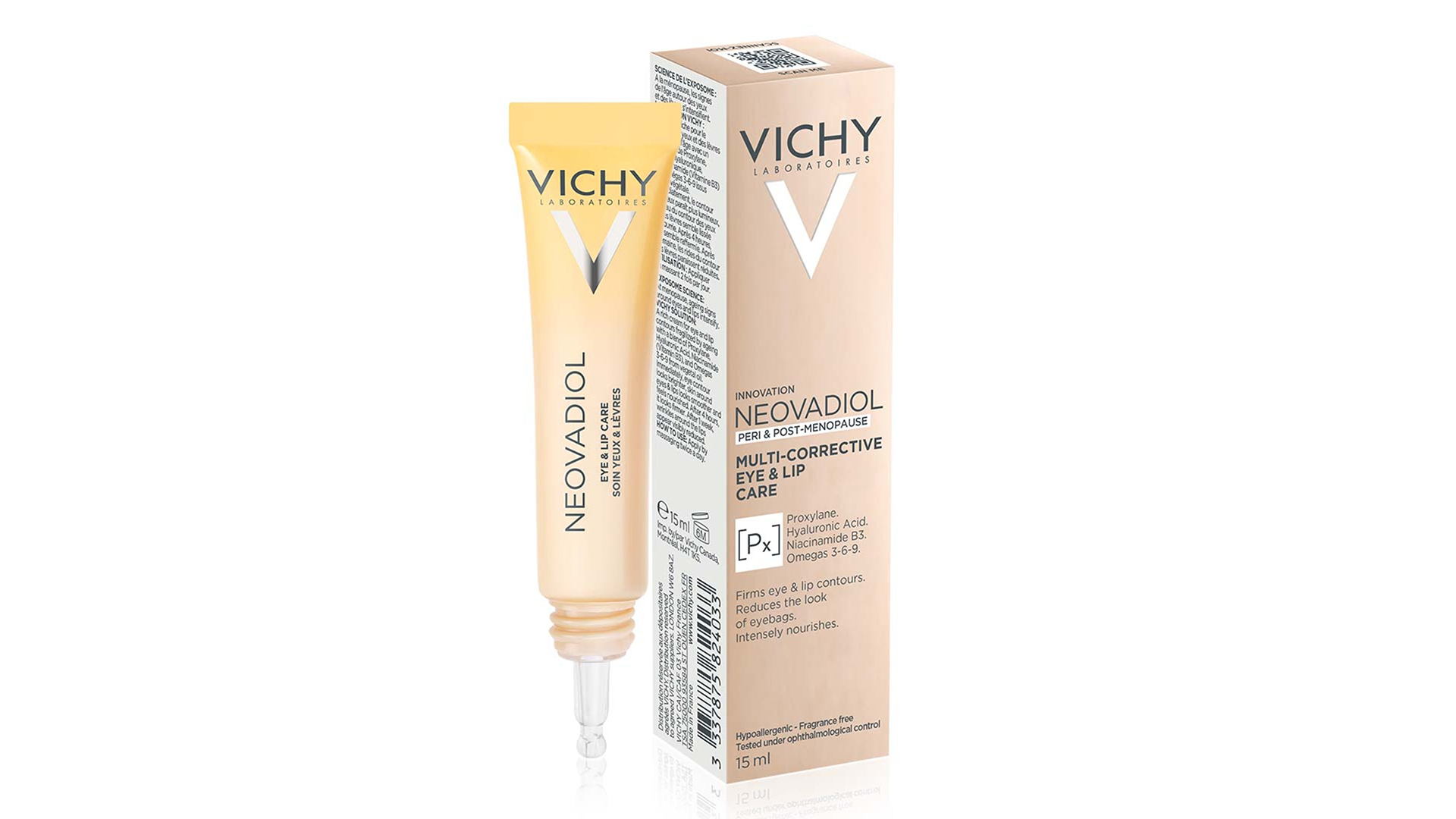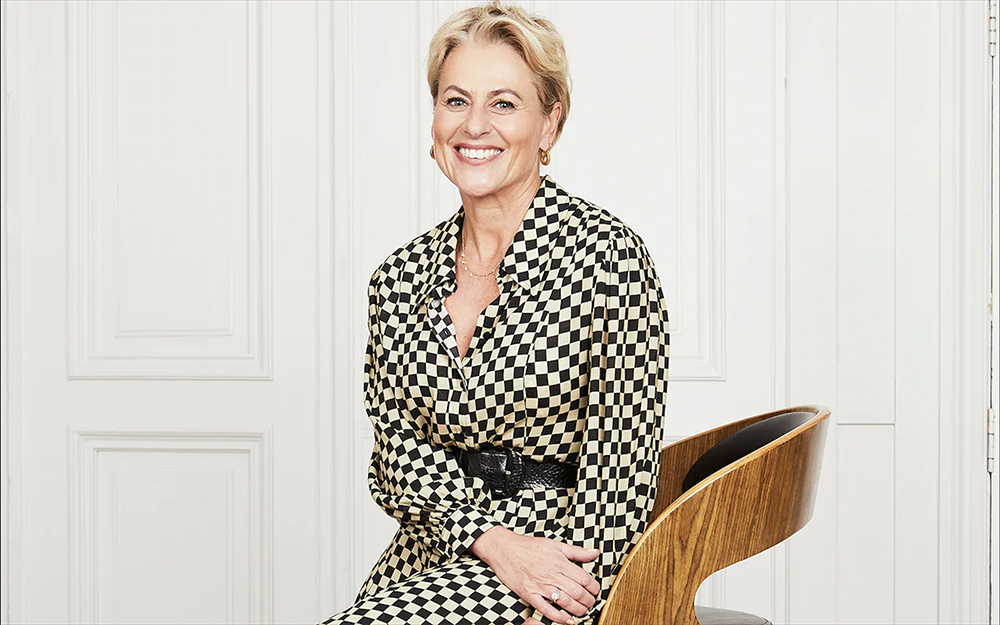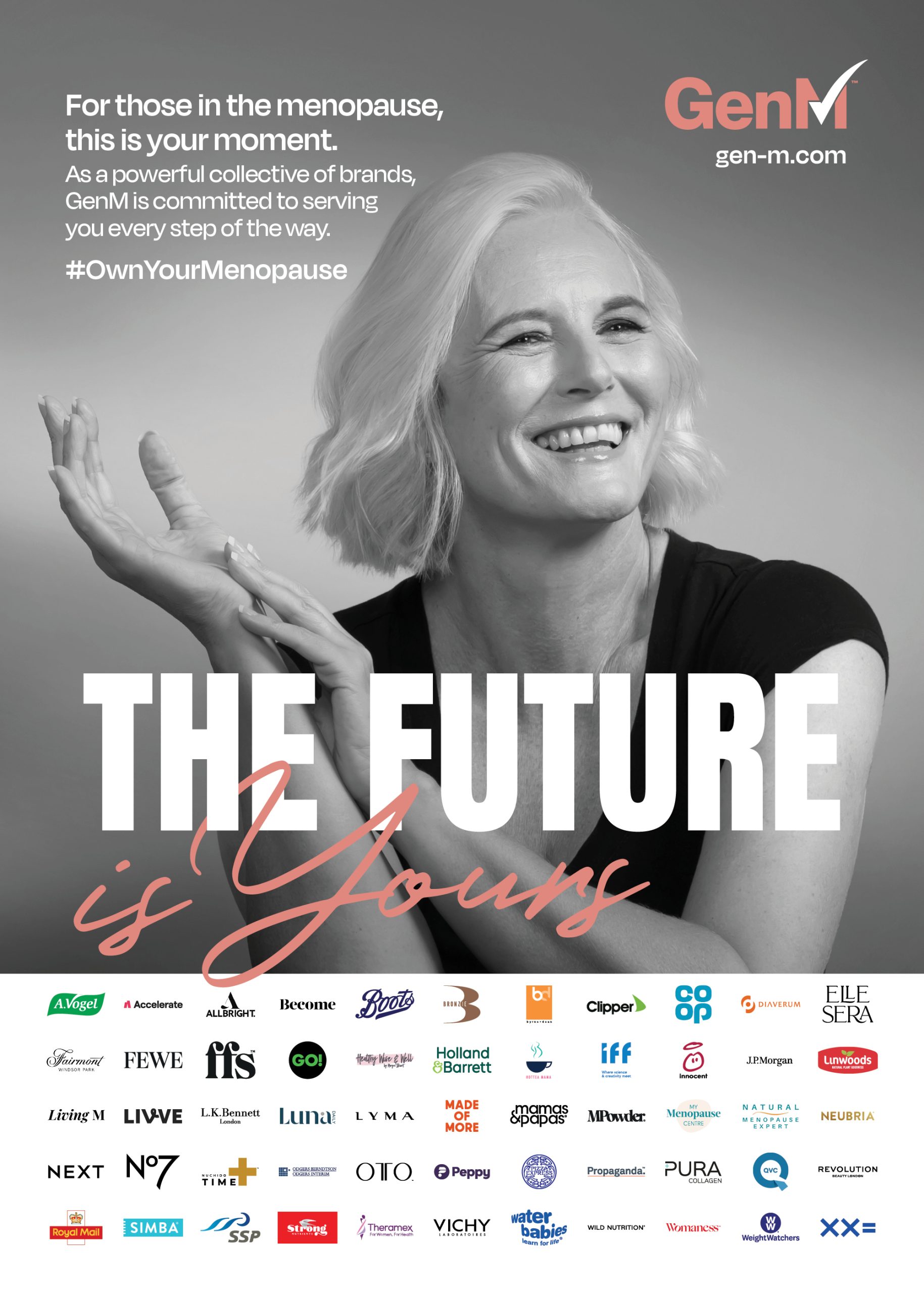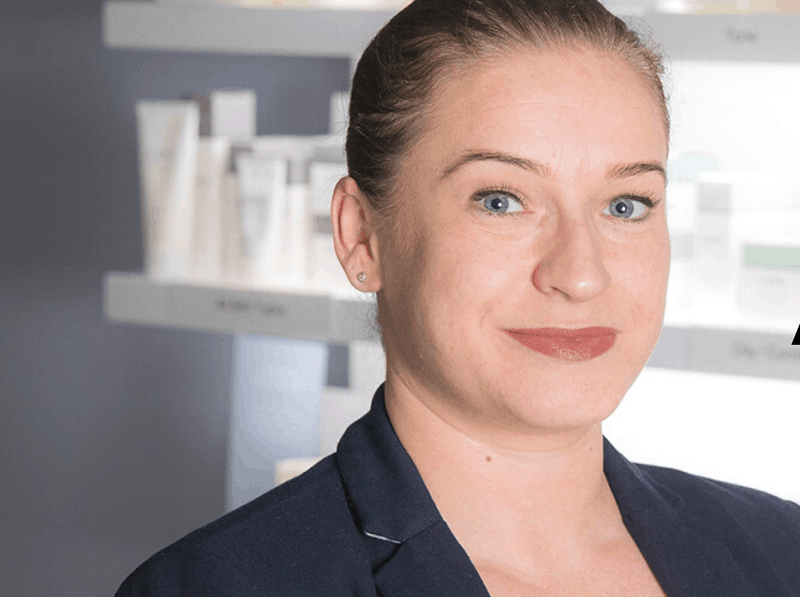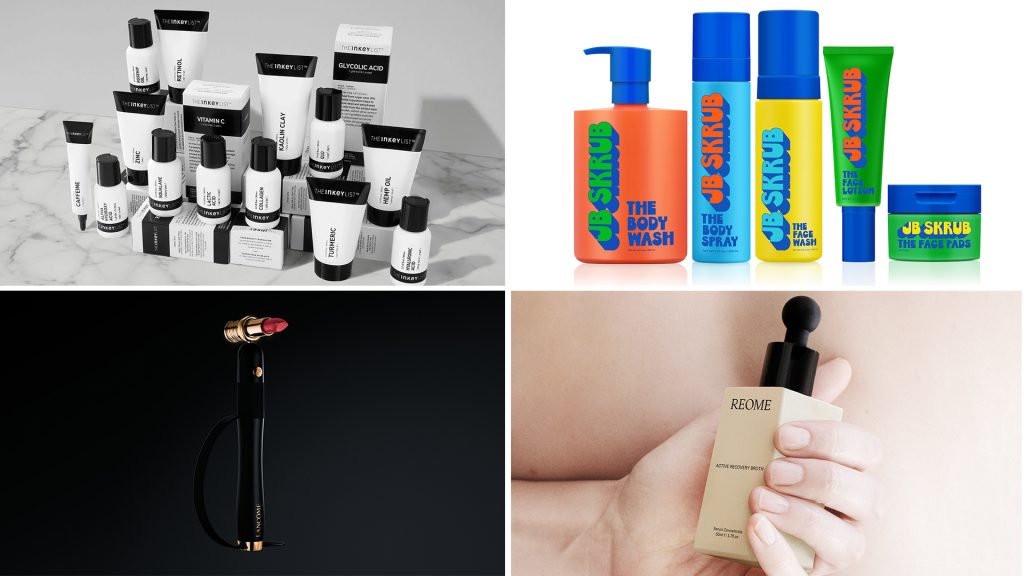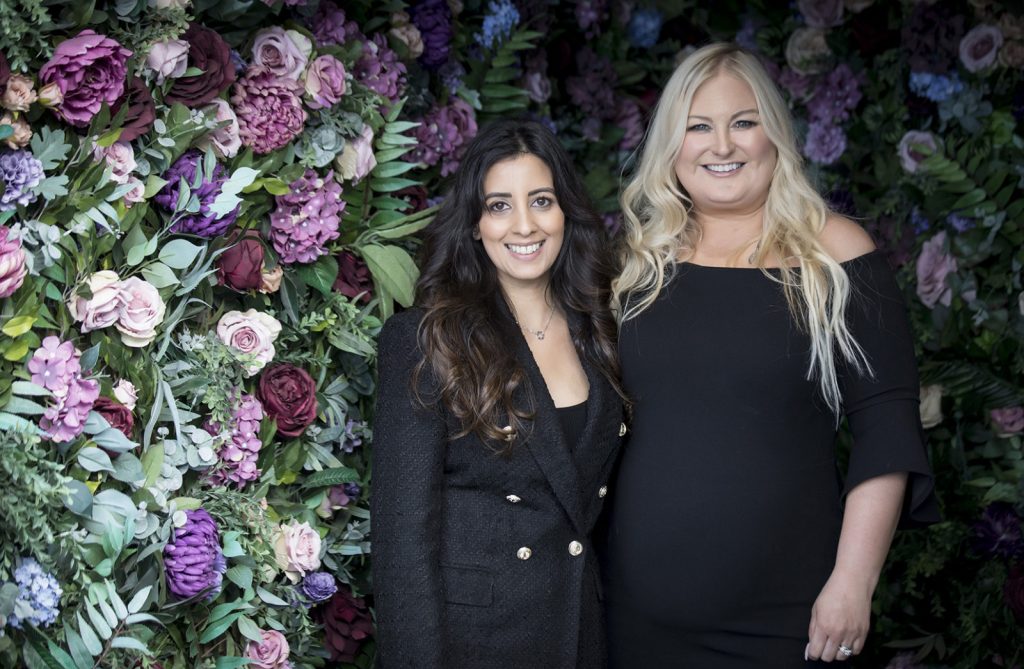World Menopause Day: it's time for brands to recognise and support mid-life women
This year's World Menopause Day is perhaps the most high profile yet. Taking place every 18 October since 2011, the event was first introduced by the International Menopause Society to raise awareness of the menopause and to support options to improve health and well-being for women in mid-life and beyond.
Thanks to a pioneering cohort of public-facing mid-life women, which in the UK includes the likes of activist and entrepreneur Meg Mathews and broadcaster Davina McCall, the impact that menopause can have on women's mental and physical well-being (as well as issues such as the shortage of HRT and the exodus of menopause-age women from the workplace) has never been more talked about.
However, campaigners and experts still say, there is more than can be done to help women manage their symptoms (and indeed identify them in the first place), continue to work in comfort and find products and services that will support them through this life stage, be they beauty, wellness, fashion or nutrition.
A number of brands and retailers have realised not only the need for products (or at least the labelling of suitable, existing products) not least because women in this cohort hold vast spending power and are so great in number. It is estimated that around 13 million women in the UK are in perimenopause (the transitional period before the menopause) or menopause in the UK, that's one third of the total female population.
- Boots has introduced menopause-friendly labelling
Given that is the case, it seems somewhat bizarre that this group should have been largely ignored until this point. But perhaps one explanation is that menopausal women themselves have been so reluctant to talk about their experiences, given lack of confidence and anxiety feature highly on the list.
Equally menopause can be equated with a sense of feeling "past it" and that's not a message many women would want to give to employers, friends and family. And that feeling is compounded by often out-dated marketing campaigns to this demographic that seem to bear no relation to the lives they lead.
GenM, the menopause partner for a raft of brands including Boots, Vichy, Marks & Spencer, Holland & Barrett, Co-op and The No 7 Beauty Company to name just a few, recently published its Invisibility Report. Some of the key findings make for depressing reading:
- 51% of women can name only 3 of the 48 symptoms
- 88% of women want their workplaces to be better set up for menopausal colleagues
- 75% of menopausal women feel that it is still a taboo subject that cannot be openly discussed
- 87% of menopausal women feel overlooked by both brands and society at large
- 90% menopausal women say brands should be more inclusive to menopause
- 91% have never seen any specific marketing/advertising for menopause products
Over half (57%) say that marketing/advertising for their age group does not reflect their life or the lives of their friends, viewing it as uninspiring (56%), showing an outdated view of their life stage (54%) and they can’t relate to it (47%)
But on the flip-side, all of this provides opportunities for brands, as GenM's Opportunity Report finds:
- 49% of menopausal women do not intend to take HRT (so we can't see HRT as the solution to all menopause issues)
- Only 39% believe brands and retailers make it obvious in stores what and where menopause products are
- Less than a third (31%) believe shop assistants are well educated on the needs of menopausal people
GenM partner Boots has been quick to respond and has recently rolled out a Menopause Friendly symbol across its stores for products that are specifically targeting the menopause and those that also happen to be good for relieving symptoms, which can be anything from eye washes to IBS medication.
Another member of GenM, Vichy Laboratoires, has recently added to its menopause specific skincare line, Neovadial, introducing a specific eye & lip care product. Vichy is just one of myriad beauty brands to take this space seriously, addressing specific menopause-related skincare concerns, which are not necessarily just ageing skin concerns.
Hormonal loss in menopause can affect the skin's production of collagen leading to a loss of volume and elasticity. Skin can also become more sensitive and women often experience acne for the first time in mid-life. Neovadial has been formulated to tackle this specific and sometimes contradictory skin concerns.
To spread awareness further and encourage others to address this market with care and consideration, GenM is running throughout Menopause Awareness Month (October), a national OOH (out of home) campaign taking in 96-sheet, 48-sheet and six-sheet ads across 18 sites, including London, Liverpool, Manchester, Nottingham, Hull, Leeds, Bradford and Huddersfield. Media for the campaign was provided by 75Media and will deliver a reach of over 27 million impacts. The creative was designed by Propaganda Brand Consultancy.
In the following Q&A, we talk to GenM co-founder Heather Jackson about why this is a campaign and a cause the brands need to get on board with.
Why is it important for products to be specifically made labelled for the menopause when they may have wider appeal/application?
Our focus is on equipping women, and all in menopause, with the understanding to make informed choices on how best to manage their menopause in a way that suits them. The menopause isn’t an illness to fix – it’s a life stage to embrace.
While there are some new products and innovations that can help the menopause (such as menopause skincare ranges from GenM Partners like Boots, Vichy and No7), many menopause-friendly items already exist (like sweat-wicking bedding, sensitive skincare, medicated shampoo etc.) but are rarely marketed towards the menopause market.
Whether due to work or family commitments, women at this life stage are often busy and time-poor. They deserve a better experience of finding products that work for them, rather than spending hours that they don’t have searching for options.
To combat this, we have launched a recognisable ‘menopause-friendly’ symbol (similar to vegan or gluten-free logos) to make it easy for consumers to find products and take control of their menopause. We partnered with Boots for its initial launch across stores and online, and will be making it available to other Partners in future. This first-of-its kind initiative is making a huge difference in normalising menopause in society, and improving the menopause experience for millions.
In terms of health more generally, what are the key concerns that women have?
One thing that these conversations in menopause have shown is that we need women’s healthcare to be taken more seriously. I’m glad to see the MPs calling for more support as seen in the recent APPG report. The taboo around women’s health issues also needs to improve – again something that is made more clear by the menopause.
The menopause movement has been a great example of women standing up and demanding better from the the brands that they use everyday, as well as the government and the medical field. I expect we’ll continue to see women taking control of their health and wellbeing and wanting to thrive through all stages of life, regardless of age.
On the positive side, what are the benefits of this life stage that brands should communicate?
Our latest campaign is all about feeling empowered in this life stage. Titled ‘The Future Is Yours’, this out-of-home ad campaign is on billboards across the country. Supported by our brand Partners, the inspiring and empowering campaign aims to reframe the menopause as the best years of your life, rather than the doom, gloom and fear that a lot of the conversation recently has focused on. We want midlife women to know that they are seen, heard and understood by GenM and our Partner brands.
As a woman, there are so many benefits to reaching midlife – the experience, skills, confidence and relationships that only come as you get older. This should be an exciting time of life – not a fearful one.
For brands, it’s also important to remember that this age group offers a strategic opportunity too. Our market research shows that a huge 87% of menopausal women feel overlooked by brands and society at large, while a further 90% wish brands were more inclusive to the menopause. Forbes even described women of menopause age as ‘Super Consumers’ who control up to 95% of their household income. The opportunity is clear.
Getting the menopause branding right can be tricky for brands with some being accused of meno-washing or just rebranding an old problem as a new one, what is the key to getting this right?
The fact is, women overwhelmingly want products that can help with their menopause as the stats above show. But sadly, 91% of menopausal women have never seen any specific marketing for menopause products. We want brands to make it easy for people to find products that can support the 48 menopause symptoms. Our research shows only 39% of menopausal currently find these easy to find in store.
Look how much money and effort goes into catering to the vegan market – less than 4% of the UK – compared to 20% of the population who are currently in menopause! This audience deserves signposting to products, informative and uplifting campaigns, and support in the workplace, and more and more, they are demanding to be seen. Just like with meat-free or gluten-free consumers, we’re not shy to say that brands can make strategic gains by serving this market and using their platforms and resources to normalise the conversation. Embracing the menopause is mutually beneficial for brands and their customers.
The key to getting it right is to see the menopause as a business issue that affects every area of your organisation – it can’t just be a box-ticking HR policy, or slapping a label on a product that doesn’t help. We need to see genuine support from brands.
Why is it so important for this conversation to happen now via events such as Menopause Awareness Day?
Normalising the menopause conversation is perhaps the step that can make the biggest difference. After all, how can we support something we can’t even talk about? Menopause Awareness Day and Menopause Awareness Month (October) are great times to focus on the issue, but it’s important that menopause remains a priority for brands all year round. It definitely lasts more than a month when you’re going through it!
As valuable as product signposting and workplace support is, brands also need to use their platforms to normalise the conversation. The reach that some of our Partners have is truly astounding and we’re so pleased to be able to collaborate on campaigns from the likes of Boots, Vichy, QVC, WW and Holland & Barrett.
What simple steps can brand/employers take to be more menopause friendly?
There are so many steps that can be taken to improve things, but we need brands to see the menopause as more than simply a medical issue, a workplace issue or even a gender issue – it’s the sum of all parts. Brands need to treat it as a business issue that affects all areas of an organisation, whether it’s signposting, marketing, product development, workplace policy, or employee morale and retention. We also need organisations to create an environment where the menopause can be discussed freely and colleagues feel safe and supported.
For one simple step that can be taken right now, Co-op recently created a guide for managers to help them support menopausal team members. They have made it publicly available for free, so any brand can make use of it if they don’t have their own guide.
